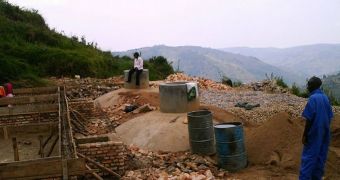Turning waste into a viable source of energy has always been considered a reliable method of keeping costs under control. This path is currently exploited by Rwanda, in an attempt to green up its jails and limit their energy consumption.
All across the country, 14 prisons are being powered by a mixture of animal and human waste. After adopting this path, 75% of the jails located in Rwanda have managed to minimize their carbon footprint while making utility bills magically shrink.
Biogas burners have already been implemented in several locations and are used to power kitchens, responding to more than half of the energy needs for cooking and lighting.
It might sounds like a dirty job, but using poo power actually pays off. According to officials from state prisons that have already tested this method of turning waste into energy, the system can trigger considerable financial savings, reducing bills by up to 85%, which translates into almost $1.7 million (€1.32million).
Most surprisingly, some of the biogas plants are built by convicts, who use their experience as engineers to guarantee the efficiency of the system.
Nsinda, one of the biggest prisons from Rwanda is collecting and exploiting sewage coming from 24 toilets. After being mixed with cow waste, the product is collected and stored in digesters, ultimately releasing methane gas that is burned as precious fuel.
Apart from liberating facilities from enormous bills, this path is also decreasing the amount of wood previously required and preserving the balance of forests.
Since turning human feces into a viable source of energy is considered one of the most ingenious, eco-friendly methods of supplying facilities with affordable power, this green technology applied by Rwandan small-scale prison biogas system was rewarded with almost $50,000 (€39,038) by Ashden Trust, an UK-based non-profit organization.

 14 DAY TRIAL //
14 DAY TRIAL //